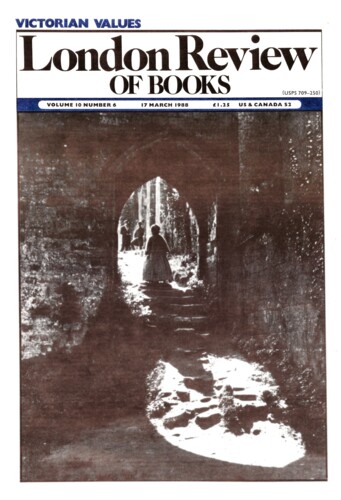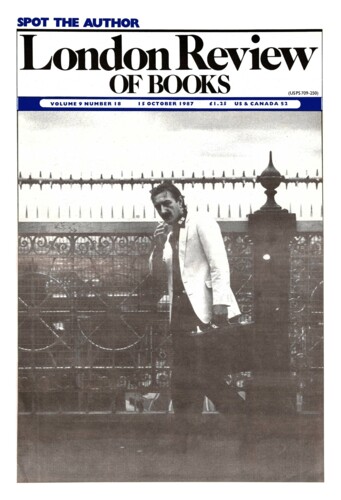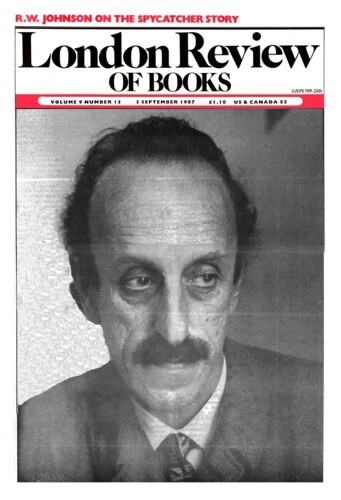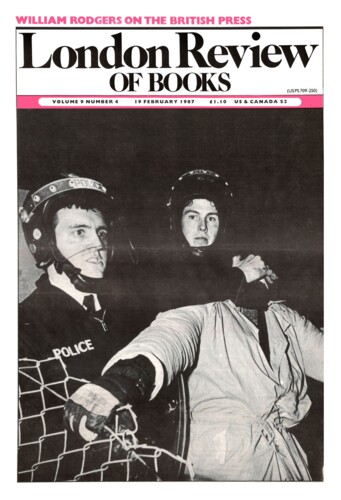Diary: 1920s v. 1980s
W.G. Runciman, 17 March 1988
To embark, as I have just done, on the writing of a volume on the sociology of 20th-century England is to be struck at once by the contrast between studying events and people in the immediate past and events and people which, for anyone of my age or less, are as remote as the First Reform Bill or the Charge of the Light Brigade. I have started by reading in parallel Peter Jenkins’s Mrs Thatcher’s Revolution and the two concluding volumes of Halévy’s magisterial History of the English People in the 19th Century, which between them take the story from 1895 to 1914. The contrast is not so much between an era of greatness and an era of decline as between – or so it seems at first sight – issues and characters larger and smaller than life. Is it just that distance lends glamour? Or is it fair to say that Parliament in the 1980s is distinguished only by its mediocrity when contrasted with the days when Asquith was at No 10, Lloyd George at the Exchequer, and Winston Churchill at the Board of Trade – and, down on the Bristol waterfront, a young carter called Ernest Bevin was getting himself elected chairman of a newly established carmen’s branch of the Dockers’ Union?’




